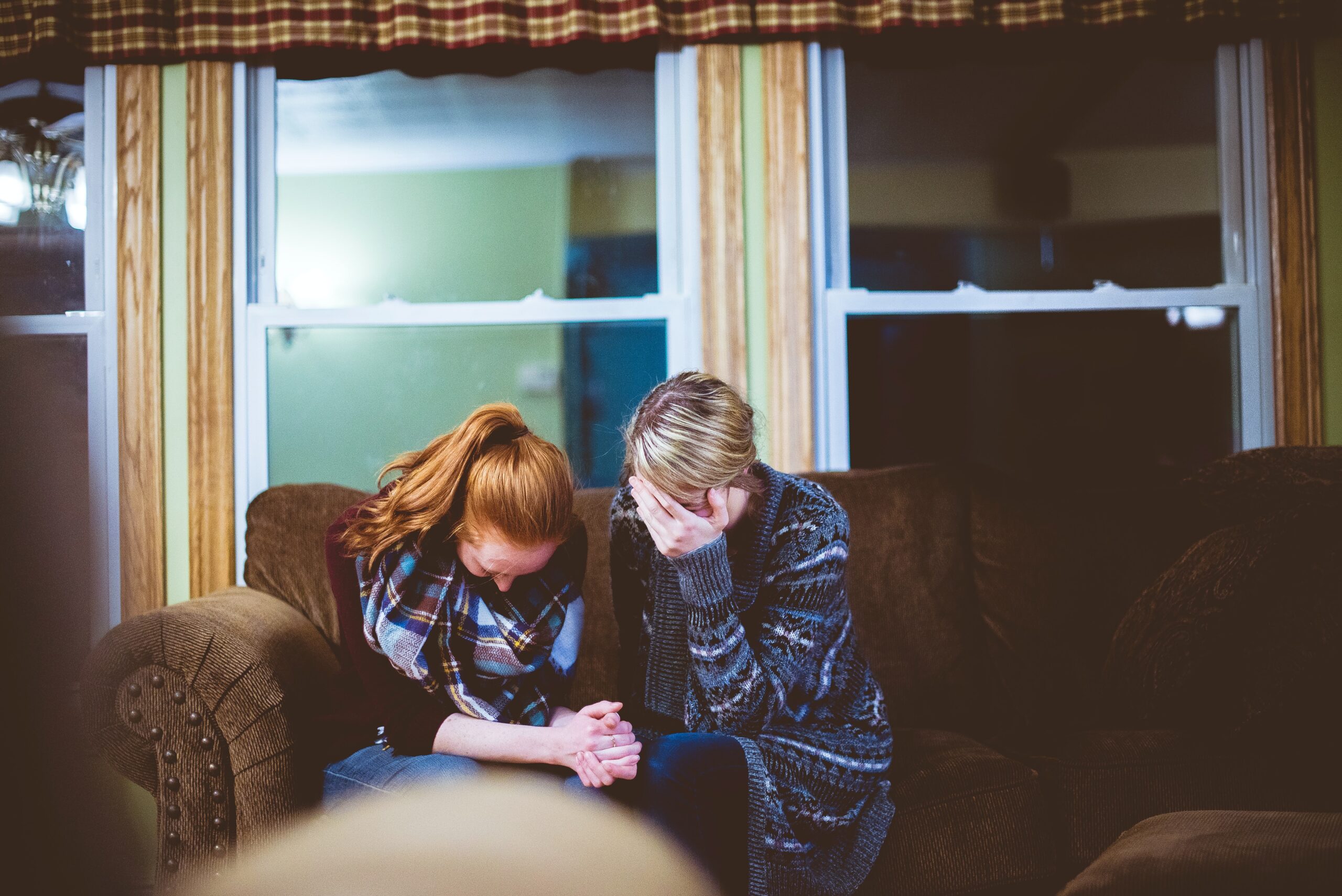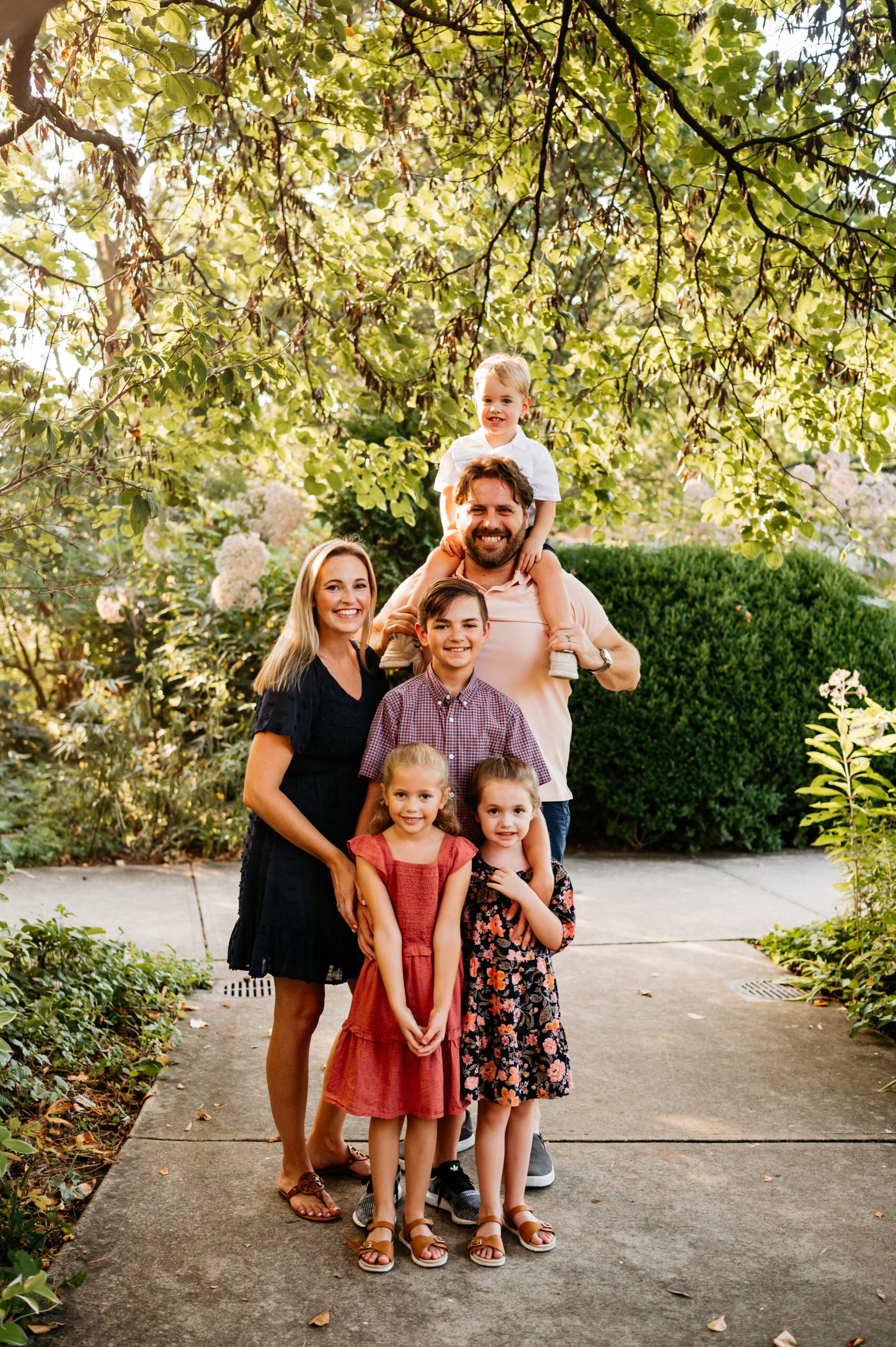Parenting can be a heavy journey. Parenting and grieving at the same time… that’s a really heavy journey, and two of the hardest things you will ever have to experience. This week on the You, The Mother Podcast, I welcomed Michele Benyo, a Certified Grief Recovery Specialist®, early childhood parent educator and coach, and the founder of Good Grief Parenting. After Michele’s 6-year-old son died of cancer, her 3-year-old daughter said, “Mommy, half of me is gone.” It was this heartbreaking statement that defined Michele’s life purpose—to be a voice for the youngest of grievers and a guide for the grownups who love and care for them. Michele has a two-fold mission, to help caring adults recognize and meet the unique needs of a child who has lost a sibling in the early childhood years and to help parents through the unimaginable challenges of parenting while grieving the death of a child. In this episode, she walks us through the grief and healing process in order equip parents with insights, tools, skills, and confidence to help their family heal after child loss, build resilience, and have hope.
In the days, weeks, months and years after losing a child, it may seem impossible to be compassionate with yourself as you navigate both the tough journey of motherhood and now a grief journey as well. When a child dies, parents are often looking for support in their parenting journey while grieving at the same time. Grief is so very personal, so first and foremost, parents need to know they will feel their own grief in their own way at their own time. People will try to come in and let you know what you should do or what they think could help you and it can make you second guess how you should grieve.
Be gentle with yourself. Michele works to help parents recognize that the only way they can recognize and support their bereaved child is by recognizing and supporting their own grief first. Grief is not an either/or situation, rather you are going through this as a family and what parents may not recognize is they can go through this WITH their child and not have to protect their child from it.
We can think of this family grief as a beautiful part of parenting that we get to walk through with our child or children. As parents, we are always growing and evolving with our kids, through the good and the bad and how beautiful is it to have a parent who will sit in the hard moments with you. You are a role model, you are teaching your child how to grieve, you are giving them a beautiful gift.
Let’s dive into what is the Good Grief Parenting Approach?
An author once said, “There are two parts to grief, the first part is loss and the second part is the remaking of life.”
Michele works with families on that remaking of life.
Support groups and therapists are great when you have had the loss and need help on what to do now and how to go on with life while Good Grief Parenting really focuses on the parenting aspect in conjunction with grief. The approach works on grief informed parenting that contains strategies and skills around coping with emotions. Michele starts with helping parents identify what they themselves need and making sure their needs are met so they can take care of their family and then she moves to look at the impact that grief has on a family.
Michele speaks about stepping back and looking at what grief truly is and understanding that it could be good because grieving is how we heal. If we deny grief we are not going to heal and can find ourselves stuck in a place that doesn’t ever feel good. The Good Grief Parenting approach looks at grief and reframes it as good grief and good grief beliefs and how we would respond to it differently if we recognize it is part of the healing process.
This approach look at the bonds and all of the relationships in the family that get disrupted and side swiped when grief happens including the relationship with the person who died and how to maintain that. It also talks about essential messages, which are the things we need to believe and understand about ourselves – that permission giving – looking at what our child needs to hear. When a child loses a sibling they may look at you going through your grief about this other child and start to wonder about their own value, worth, and place in all of this. The world as they knew it has just been ended. There are messages that need to be reinforced in our conversations, behaviors and responses to our living child. And finally how can we assimilate our loss and grief that we are going to carry forever and what choices will we make in our parenting going forward to make sure that our child’s needs are met and their identity as a bereaved sibling is carefully carried.
Simply put, Good Grief parenting is a parenting program for the family that no longer fits in that typical parenting journey from early childhood to adulthood.
Michele’s daughter shared with her that “half of her is missing” but sadly there are many children who cannot tie words to their feelings. So I asked Michele, how do parents whose children are not coming and expressing that they are not okay, recognize their struggles?
Most parents are not going to see the grief of their child. But Michele says, without a doubt if your family has experienced a devastating loss, especially the loss of a child, that your living child is processing it and feeling it very deeply. They are not going to show it the way that you do. You can tune into their play, children process a lot through play and you may hear them including their sibling in play or singing songs about their siblings. The biggest mistake parents can make is to not talk to their child about it if their child doesn’t talk to them just to try and protect them. From the beginning, the best thing you can do is to initiate conversations with your child, don’t allow the elephant to be standing in the middle of the room. When you are sad, you can say to your child, “I am really missing your sibling today, when are you missing them the most?” Invite them to join you in the feeling you are having and let them tell you about it.
Also, pay attention to other behaviors that don’t look like grief, i.e., they are acting irritated or misbehaving in ways they haven’t before or the child who you think outgrew sucking their thumb and now are doing it again, or they don’t have an appetite or aren’t sleeping well, talk to them about how they are doing, share with them the awareness that you have this thing going on in your family and everyone can talk about their feelings.
Michele and I talked a lot about how parenting and grief are two of the hardest things you will do. So how can parents who are going through so much help themselves through this journey?
Be sure to have conversations with your spouse or partner about what each of you needs, and how you can help each other get those things you need to make it through each day. Also, determine what you used to enjoy, things that fulfill you, your self-care items and give yourself permission to seek what you need and find people who will help you get that. Also, have that conversation with your child, let them know you need some time to be quiet by yourself while they watch a movie. Let them know they can come to you if they need you but if not you will be out when your quiet time is done, you are teaching your child about self-care, and recognizing needs.
Self-care needs are not selfish and need to be at the top of your priority list.
And finally, what are some important things we can remember when supporting a bereaved child?
Acknowledge and honor grief. Even if there is not a death in your family, a child is going to experience grief on some level. Parents, remember a moment or a time when you grieved something or someone. Maybe it was a death or maybe it was the loss of a favorite toy, how did you feel about it? Your child will experience those same feelings in their early childhood. Honor grief moments, however big or small they may seem, ask if your child wants to talk to you about it or if they need a hug, don’t just try and make them feel better because then you are telling them it is not okay to feel grief. Don’t be afraid to talk to kids about how bad grief can feel, but use essential messaging such as, “I know it feels really bad right now but we are not always going to feel this way, we will feel better and we will get through this together.” It provides an empowering look that we are not stuck in grief, we can move on from here.
When we honor children’s grief along with all the other ways we teach them at an early age to manage what is going on in their bodies and their emotions and that it is okay and we can get move through all of the feelings together.
Supporting You, The Mother,
Abbey Williams, MSW, LSW




